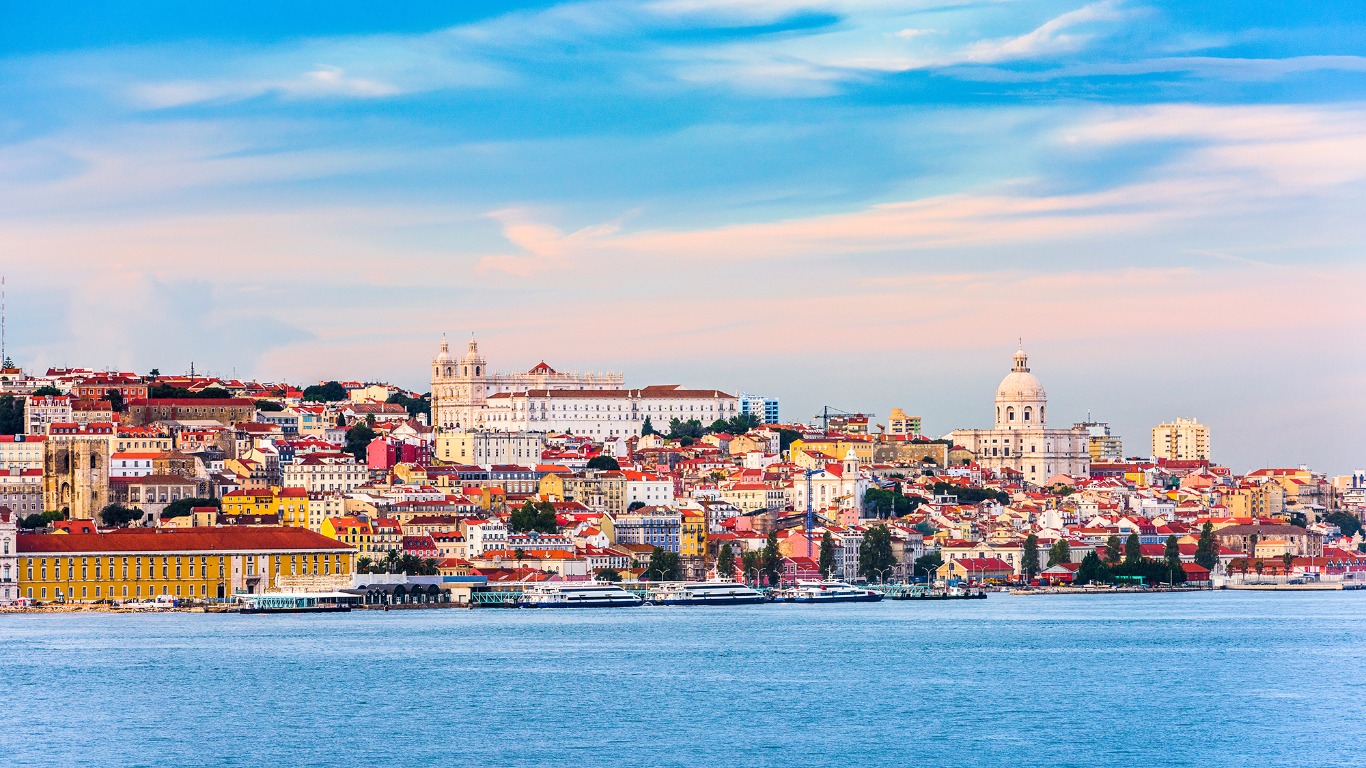Explore Lisbon: places to visit, things to do and the best hotels
Find out what there is to see, do and eat in Lisbon plus the best places to stay depending on your budget.
Introducing Lisbon
Lisbon offers ancient and contemporary arts, centuries-old boutiques and modish designer shops, traditional food and world-class modern cuisine, and an unshakeable connection with the river and sea. Parts of Portugal’s capital city appear to have changed little over recent decades but Lisbon’s centre is undergoing a transformation.
Crumbling buildings, shabby markets and the once grotty riverside area have received a much-needed facelift while a fresh crop of new museums and gardens have emerged.
Here's everything you need to know about Lisbon's best tourist attractions, the top hotels and where to eat.
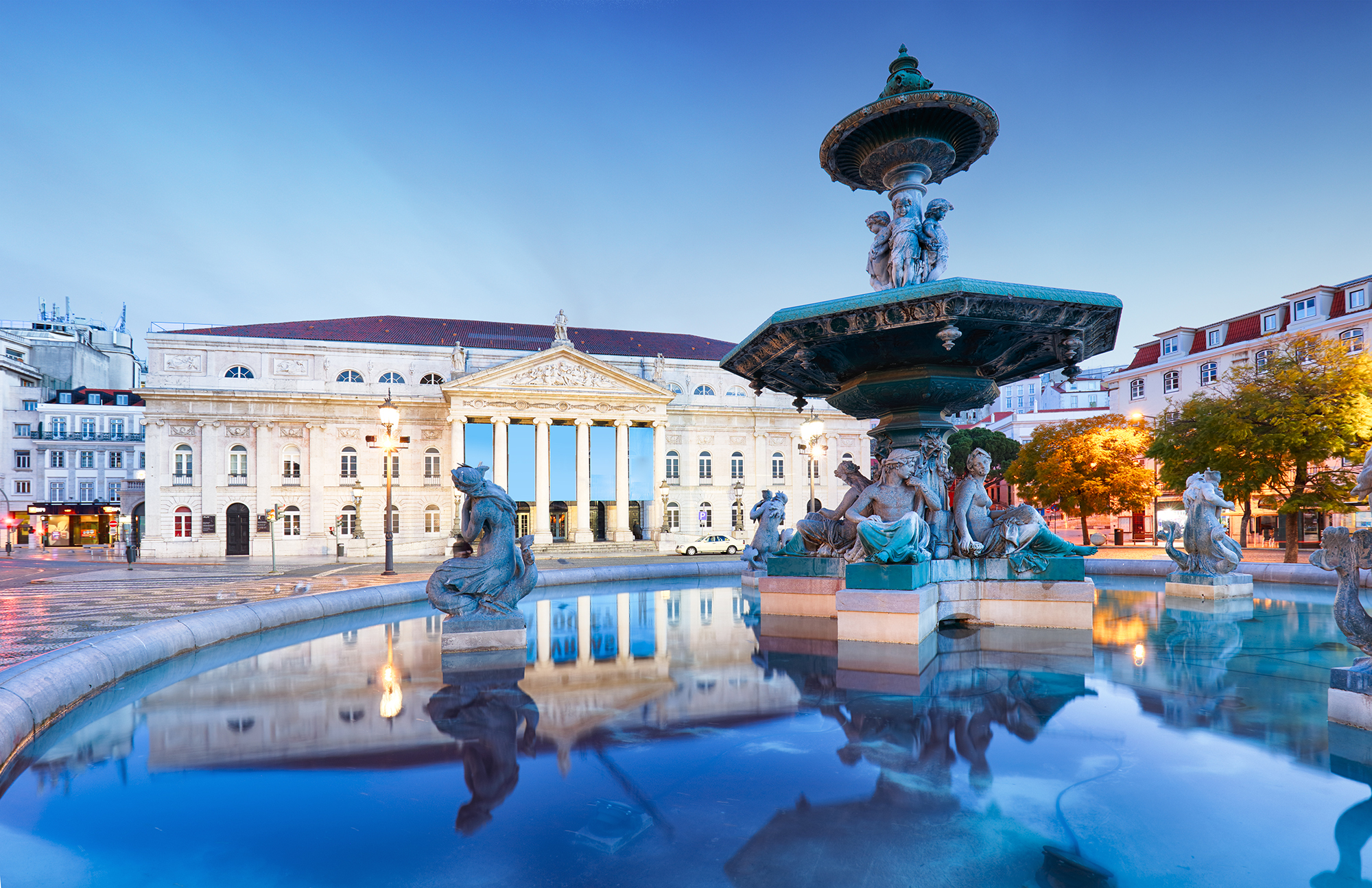
TTstudio/Shutterstock
5 essential things to do in Lisbon
1. Ride the rails on Tram 28
Journey on one of the vintage wooden trams that trundle through the ancient streets of Alfama and the historical centre. You’ll get a tour of the city for less than €2.
2. Lose yourself in Alfama
Take a wander through the maze of narrow cobbled streets of Alfama, Lisbon’s oldest neighbourhood. Make sure you listen out for the haunting sounds of traditional fado music.
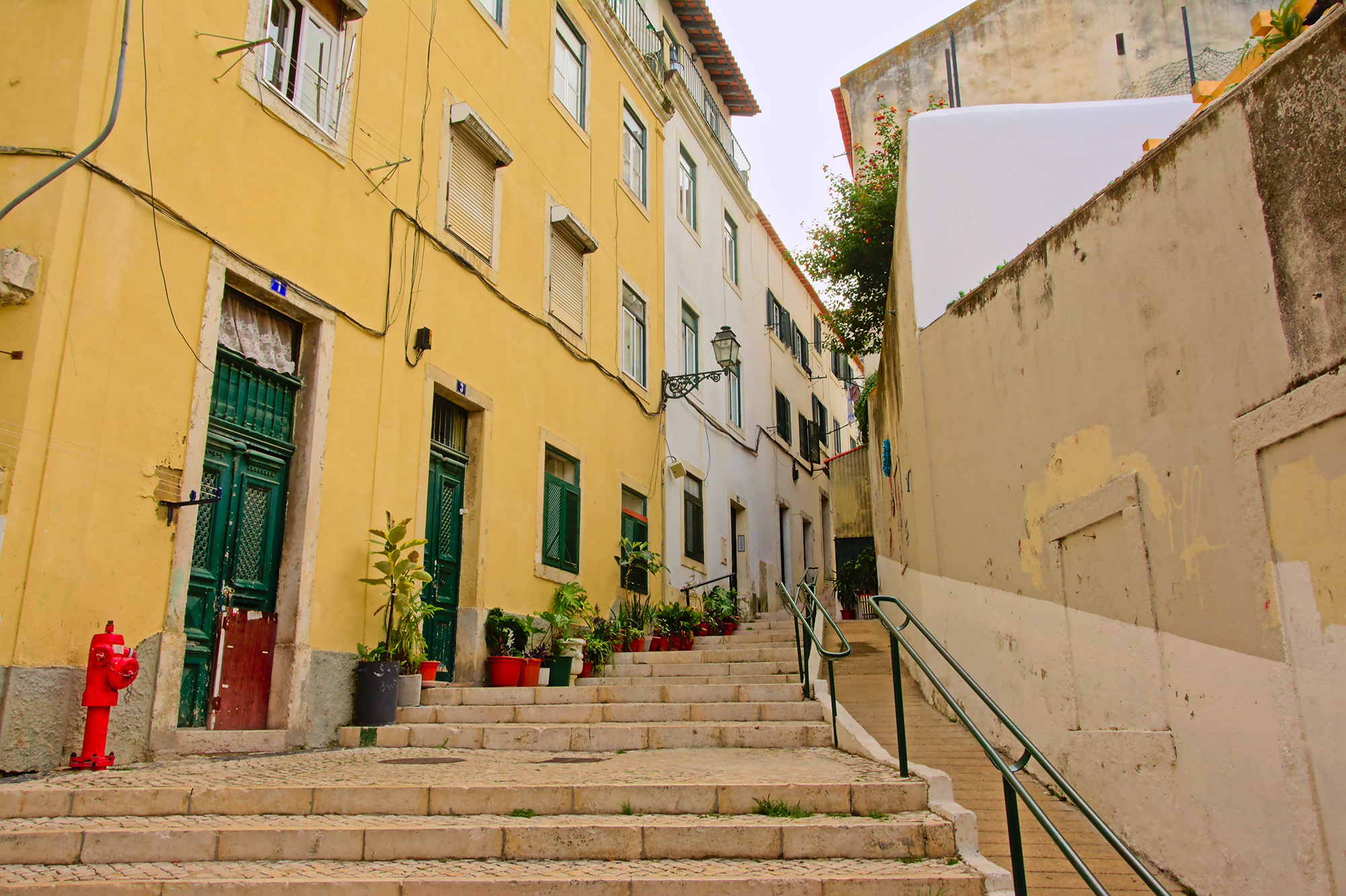
kristof lauwers/Shutterstock
3. Stroll beside the Tagus
The redeveloped riverside area that connects Praça do Comércio, the former royal square, with Cais do Sodré is the perfect antidote to the hustle and bustle of city streets. Laze on the steps at Ribeira das Naus to watch ferries, cruise ships and sailing boats on the river, or stop for sundowners at one of the café-bars.
4. Admire Baroque architecture
The 16th-century São Roque church was one of the few buildings in Lisbon to survive the devastating 1755 earthquake intact. Plain on the outside, the interior is dripping with gold leaf, paved with inlaid marble and clad with hand-painted ceramics.
5. Explore Belém’s architecture and cakes
Belém is home to one of the finest examples of Manueline (Portuguese Gothic) architecture. Jerónimos Monastery, as well as the iconic Belém Tower, is the naval defence structure from which Portuguese explorers set sail during the Age of Discovery. Don’t leave Belém without tasting the namesake egg custard tarts at Antiga Confeitaria de Belém.

Natalia Mylova/Shutterstock
5 alternative things to do in Lisbon
1. Cool off in Estufa Fria
Tucked away at the top of Eduardo VII Park is a refurbished greenhouse complex with a hothouse and cold house, originally built in 1933. The range of exotic plants in this refreshingly cool environment is incredible. Among the foliage you’ll find grottos, ponds and statues.
2. Pick up a bargain at the flea market
Every Tuesday and Saturday, the area behind São Vicente de Fora church in the Graça neighbourhood teems with traders and visitors at the Feira da Ladra flea market. You’ll find bric-a-brac, antiques of dubious origin, vintage clothes, as well as souvenirs and crafts.
3. Hang out with the art crowd at LX Factory
An influx of designers, entrepreneurs and imaginative souls has transformed a cluster of warehouses in Alcântara into the place to be for urban creatives. Come here for trendy restaurants and shops, including Ler Devagar bookshop with its flying cyclist, and excellent street art.
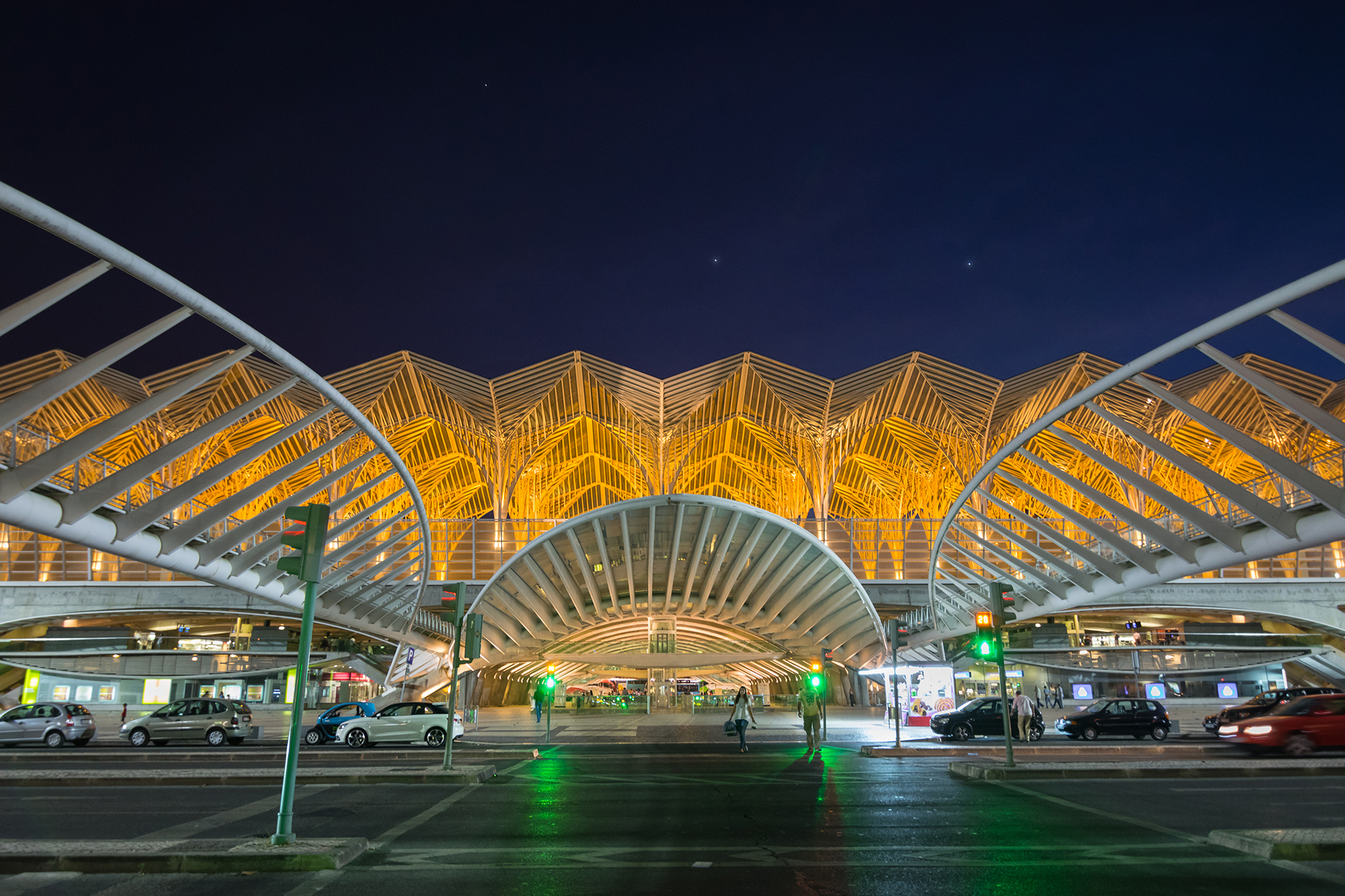
Nido Huebl/Shutterstock
4. Explore Lisbon’s modern side
The Park of Nations was built for the 1998 Expo and features the contemporary naval-themed architecture of Oriente train station, Vasco da Gama shopping centre and neighbouring twin towers. The riverside park area has a cable car, sculptures and is home to one of Europe’s best oceanariums.
5. Chill out with Lisboetas in Jardim da Estrela
Popular with local residents, the 19th-century city park has a curly network of paths and a beautiful bandstand.
Map of Lisbon
Navigate to all our favourite places with this handy map of Lisbon:
The best Lisbon hotels
Splash out:
1. For opulence: With beautiful views of the Tagus River, the 19th-century Olissippo Lapa Palace is set in gorgeous grounds and offers luxurious rooms and top-notch service.
2. For an excellent location: Housed within the former royal square, Pousada de Lisboa’s location is hard to beat. Arched and decorative ceilings add to the elegant atmosphere where the service is impeccable.
3. For great views: Some of the elegant, spacious rooms of the Four Seasons Hotel Ritz have balconies overlooking Eduardo VII Park. If you’re keen to stay in shape, the fitness centre and outdoor running track on the 11th floor also offer great vistas.
On a budget:
1. For modern charm: The Hotel Riverside Alfama is situated near the river at the base of the hilly Alfama neighbourhood and offers some pleasingly stylish touches. It’s within easy walking distance of Praça do Comércio.
2. For a self-catering space: Named after Lisbon’s seven hills, The 7 Hotel is in the heart of Lisbon’s Baixa/Chiado shopping district and offers rooms and studios with self-catering facilities.
3. For a party atmosphere: Evolution Lisboa Hotel is in the heart of Saldanha’s shopping and business district. This modern hotel has an indoor pool, Turkish bath and sauna. Live DJs entertain guests in the lounge.
Where to eat in Lisbon
1. For local fare: Take your pick of tasty Portuguese dishes from some of Lisbon’s best restaurants at the Time Out Market food hall in Mercado da Ribeira or head to the cosy and informal Taberna da Rua das Flores for fresh Portuguese flavours with a twist.
2. For fresh fish and seafood: Avoid peak times if you don’t want to queue for Lisbon’s most popular seafood establishment, Cervejaria Ramiro. For a more orderly approach, reserve a table at Sea Me where you can select your dinner from the live tanks in the cellar or from beds of crushed ice.

Azonman/Shutterstock
3. For fine dining: Chef José Avillez dominates Lisbon’s gourmet food scene: with two Michelin stars, his Belcanto restaurant remains the city’s finest so book well in advance. Alternatively, try the eight-course tasting menu at 100 Maneiras, expertly paired with delicious Portuguese wines.
Top insider tips
1. Worth the wait: The terminal for tram 28 usually has quite a queue. If you’re not going to get a seat on the first tram that turns up, wait for the next one – you’ll see so much more.
2. Budget trams and elevators: Avoid paying the extortionate on-board prices for trams and elevators by planning ahead. Use a daily travel pass, pre-paid journeys, Zapping or a Lisbon Card to save several Euros on each trip.
3. Sunday treats: If you’re in Libson on the first Sunday of the month, most museums offer free entry.
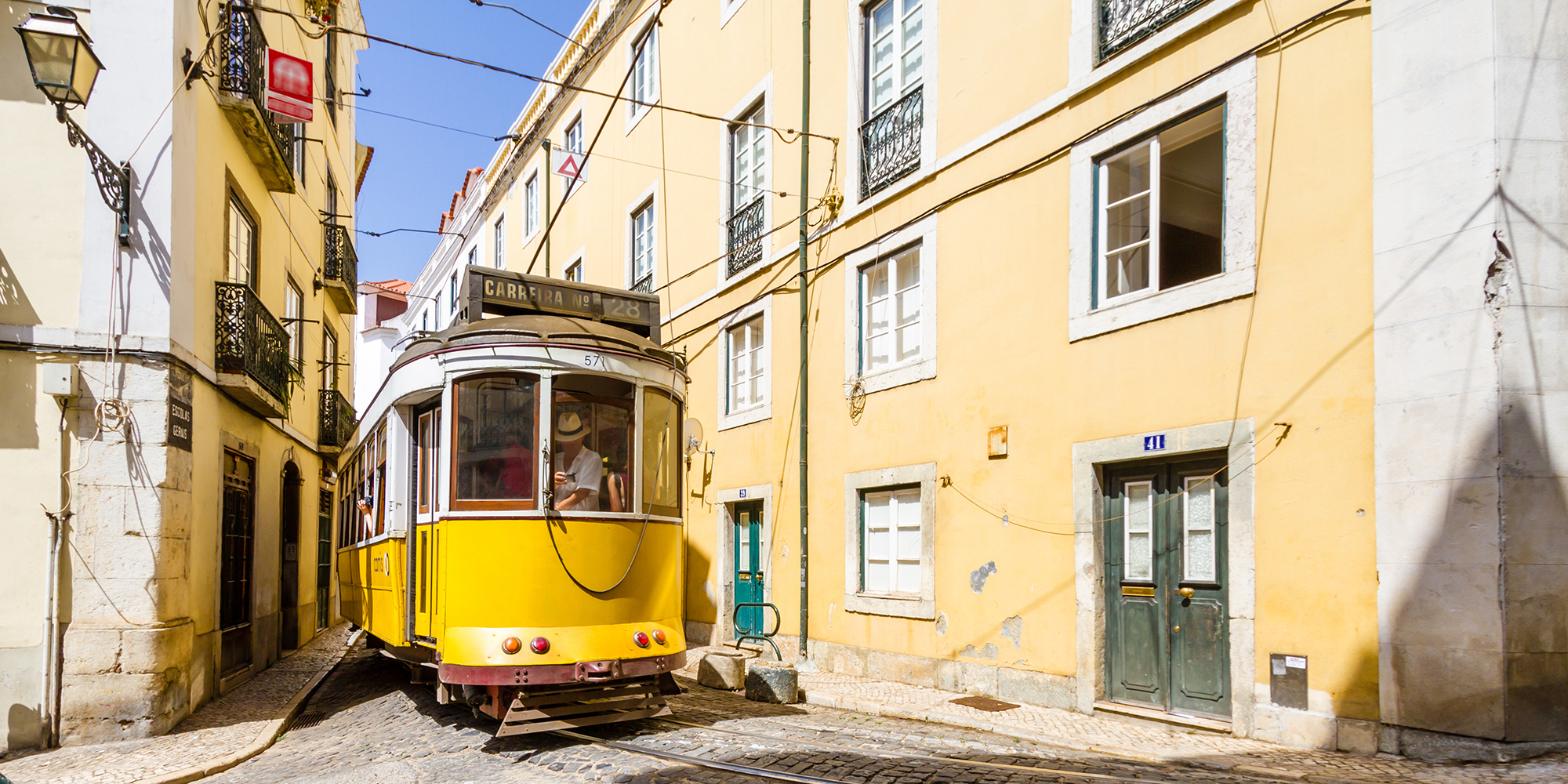
Paolo Querci/Shutterstock
Day trips from Lisbon
1. Enchanting palaces
Sintra is a fairy tale town bursting with palaces and castles and follies, with a backdrop of forested hillsides. It’s a mere 40 minutes by train from Lisbon, although there are numerous organised tours to choose from.
2. Évora
With a 15th-century aqueduct, Roman temple, megalithic standing stones and an eerie chapel made from the bones of Franciscan monks, Évora is an ideal destination for history buffs. Around 90 minutes by car or two hours by train, you can explore Évora independently or take one of many guided tours from Lisbon.
3. Cascais
Part of the Portuguese Riviera, the posh 19th-century resort town of Cascais has retained its charm and offers beaches, several museums and excellent restaurants.
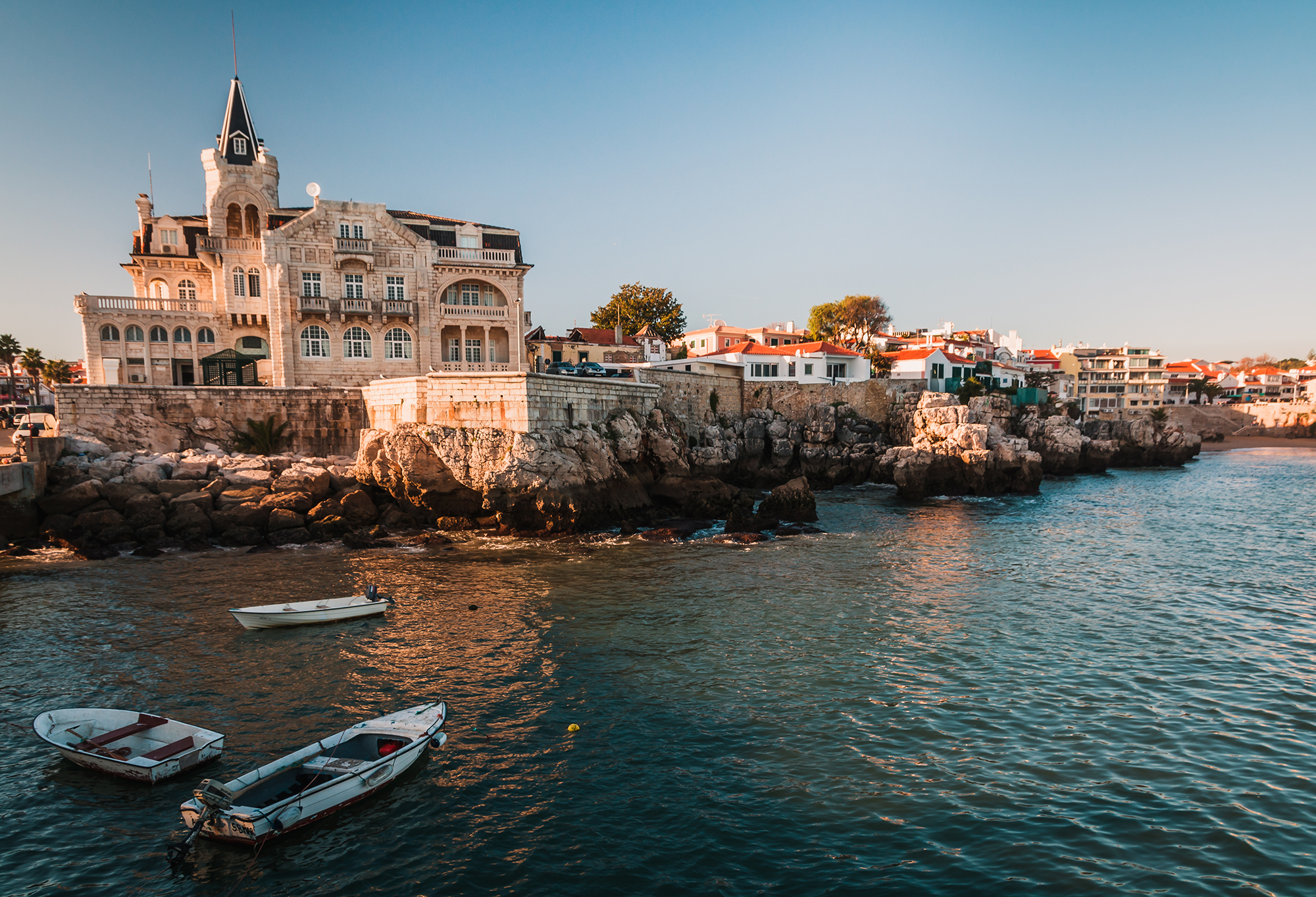
Evgeni Fabisuk/Shutterstock
The best time to visit Lisbon
With plenty of things to see both indoors and outdoors, Lisbon is a year-round destination. Winters (December to February) are milder than in the north of Portugal and many other European cities. Although it can get chilly, there are often warm, sunny days even in January. Spring and autumn (March to June and September to mid-November) are particularly pleasant times to visit, with slightly fewer tourists and temperatures that are conducive to sightseeing.
July and August can get uncomfortably hot and in August, many independent shops and restaurants close for the month. Nevertheless, these two summer months are prime time for tourists so expect high accommodation prices and lots of visitors.
How to get to Lisbon
Lisbon is well served by hundreds of daily international and domestic flights.
There is one airport with two terminals, just six miles north of the city. The red metro line into the city centre begins at the airport and there are two Aerobus routes, as well as taxis and Uber. There are good train and coach connections with the rest of the country and Spain.
Comments
Be the first to comment
Do you want to comment on this article? You need to be signed in for this feature
